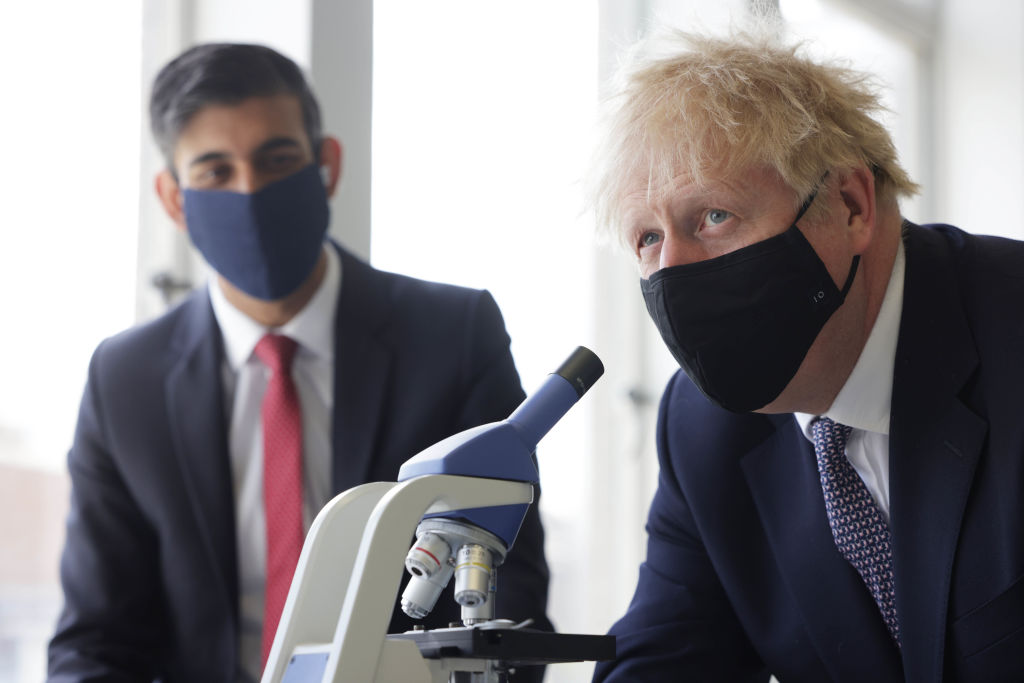When Rishi Sunak told Andrew Neil this evening that he had his eyes on the future, he was ostensibly talking about the nation’s finances. But it was difficult not to conclude from his interview on GB News that he wasn’t also keeping at least one eye on his own future, too. A particularly striking exchange came when Neil asked him what kind of Conservative he is:
Andrew Neil: ‘Beyond the pandemic are you a One Nation conservative, are you a big Government Conservative like the Prime Minister or are you a small government, fiscal Conservative?’
Rishi Sunak: ‘Of course I’m a fiscal Conservative, Andrew, because as we talked about it’s not my money, it’s other people’s money and I take my responsibility to that very seriously and that’s why I’ve got an eye on the future and managing those risks. But it is important to me to deliver our commitments in the manifesto from investing in public services, to spread opportunity around the country. I believe we are getting on with that.’
Sunak’s caution points to a conflict in the wider Conservative party
Sunak was happy to accept the premise of the question, which is that the Prime Minister was a different sort of Conservative who was content with high levels of spending and a big state. He also dodged Neil’s follow-up, which was about the overriding message from the G7 that the Big State is back (more on this in James’s cover piece in the new Spectator, out tomorrow).
On how far this fiscal conservatism might stretch, Sunak was coy. On the pensions triple lock, for instance, he said it was ‘still government policy’ but refused both to say that pensions could go up by eight per cent if that is – as is expected – the increase in average earnings. He could have prepared the ground for the triple lock being dropped in the same sort of exceptional circumstances that saw the international development spending target cut from 0.7 per cent of gross national income to 0.5 per cent, but he didn’t. On this and other matters, he was careful to say that he couldn’t pre-empt fiscal events like the spending review.
His caution points to a conflict in the wider Conservative party, between those who are worried about the new era of high-spending Tory government, and those who fancy a bit of that big spending for their constituencies or pet policy issues.
Even the very dry fiscal Conservatives must also accept that the public won’t be very happy if the enormous NHS waiting lists (now past five million) aren’t tackled properly, but that could cost as much as £40 billion.
Where could a fiscal Conservative who believes it’s not the government’s money but taxpayers’ money get that kind of dosh from?
Sunak wouldn’t answer repeated questions about whether he would have to go for tax rises. But he knows that after a pandemic that he’s largely emerged from looking pretty good in comparison to his colleagues, the choices ahead are going to be a lot more unpopular than merely cutting the aid spending target.







Comments